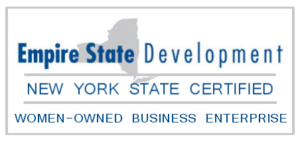
By: Leonardo Lampret, Associate Attorney
In the context of workers’ compensation law, determining whether a claimant is totally industrially disabled is a complex process that goes beyond simply assessing the extent of a claimant’s physical injury. Total industrial disability status is governed by a combination of statutory provisions and case law, which allows for a claimant to apply for this status at any time, even after having exhausted the maximum benefits they are entitled to under WCL § 15(3)(w). Minichiello v. New York City Dep’t of Homeless Servs., 188 A.D.3d 1401, 136 N.Y.S.3d 182 (2020).
Under WCL § 35(2), claimants retain the right to apply for total industrial disability status, regardless of whether they have reached the limits of benefits under the Workers’ Compensation Law. This provision ensures that claimants can seek total industrial disability status based on their unique circumstances, as long as they present sufficient evidence.
What is Total Industrial Disability?
Whether or not a claimant can perform any work is a question of fact for the Board to resolve, and its determination will be upheld if supported by substantial evidence. Kucuk v. Hickey Freeman Co., 78 A.D.3d 1259, 909 N.Y.S.2d 831 (2010).
To establish a claim for total industrial disability, the claimant must show that they are incapable of gainful employment due to their physical and non-physical limitations. This includes demonstrating that the combination of their permanent partial disability and other contributing factors—such as educational background, age, functional limitations, language proficiency, work experience, and training—makes them unsuitable for any type of salaried employment. Ping Guan v. CPC Home Attendant Program, Inc., 50 A.D.3d 1218, 854 N.Y.S.2d 808 (2008).
In evaluating whether total industrial disability exists, several important cases have shaped the legal landscape. In Barsuk v. Joseph Barsuk, Inc., 24 A.D.3d 1118, 807 N.Y.S.2d 195 (2005), the court emphasized that a claimant must show they are “incapable of gainful employment,” with a focus on the combined impact of their injuries and other factors affecting their employability, including claimant’s limited educational background, functional limitations, age, language proficiency, training, and work experience.
To support a claim for total industrial disability, a claimant must provide sufficient evidence demonstrating how their disability and other factors combine to prevent them from working. The following types of evidence may be considered:
- Claimant’s Testimony: Testimony regarding the claimant’s functional limitations, education, training, work history, and other personal circumstances that impact their ability to secure employment;
- Medical Evidence: Evidence showing that the claimant is functionally incapable of performing work due to both causally related and unrelated injurie;
- Vocational Rehabilitation Report: A report from a vocational expert may be critical in establishing the claimant’s unsuitability for general employment, particularly when physical or functional limitations prevent them from working in any available capacity.; and
It is important to note that evidence that a claimant has made attempts to secure employment without success is not a prerequisite for a finding of total industrial disability. See Employer: Town of Greenville (WCB G097 4845, October 30, 2019).
What happens when the claimant raises a Total Industrial Disability?
Once a total industrial disability is raised, the parties shall be given the opportunity for record development. If a total industrial disability is raised before the WCLJ, the WCLJ should inquiry of the parties if they want further record development, including the opportunity to present additional evidence. If the claimant or carrier requests record development, then the WCLJ shall either:
- continue the case for the presentation of evidence and development of the record; or
- mark the case no further action, and find that the case will be reopened when the party wishing to present new evidence informs the Board the new evidence is available and they are ready to proceed. Employer: Timothy B Gross, (WCB# G021 8015; June 22, 2022).
Conclusion
While the law allows claimants to seek the status of being totally industrial disabled at any time, they must provide substantial evidence that demonstrates their inability to work due to a combination of their disabilities and other personal factors. Understanding the legal precedents and the types of evidence required will help employers and carriers effectively defend against the Total Industrial Disability finding.

